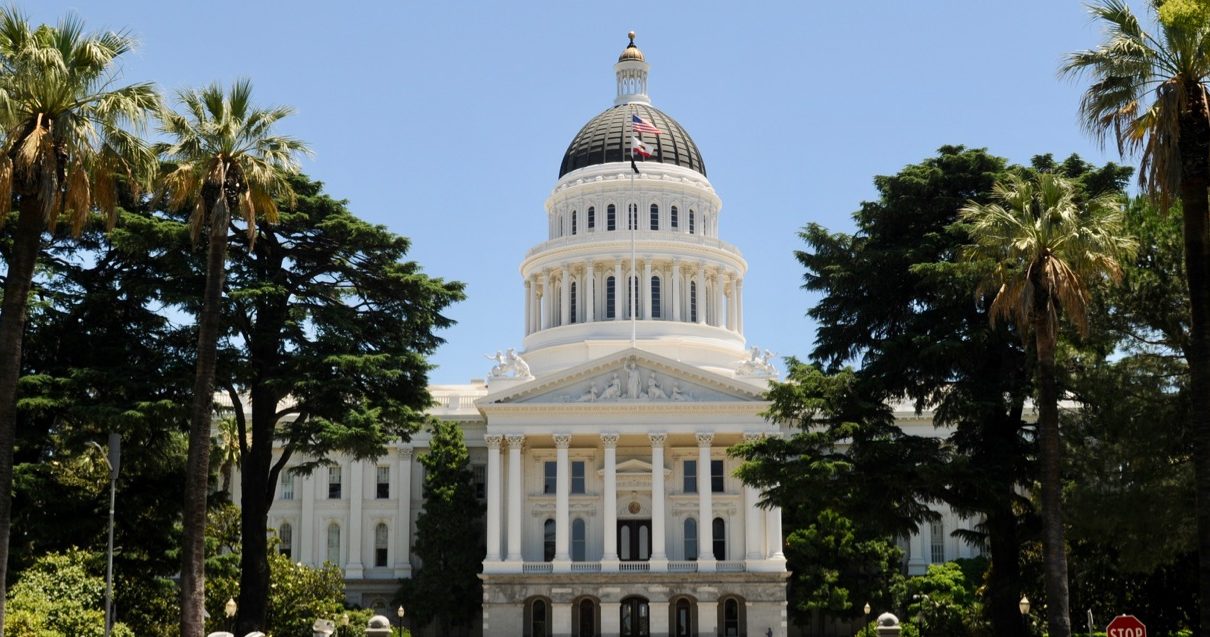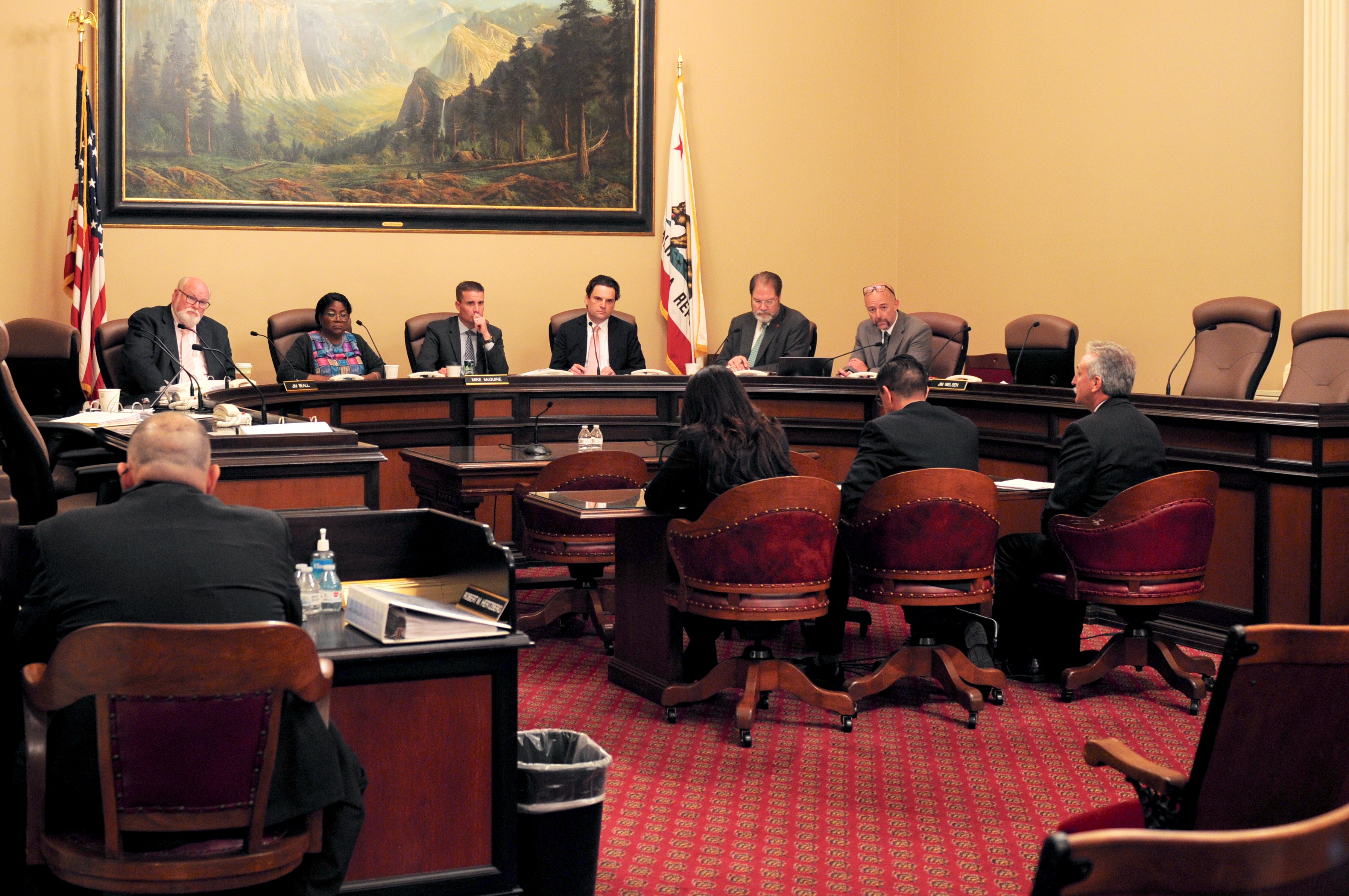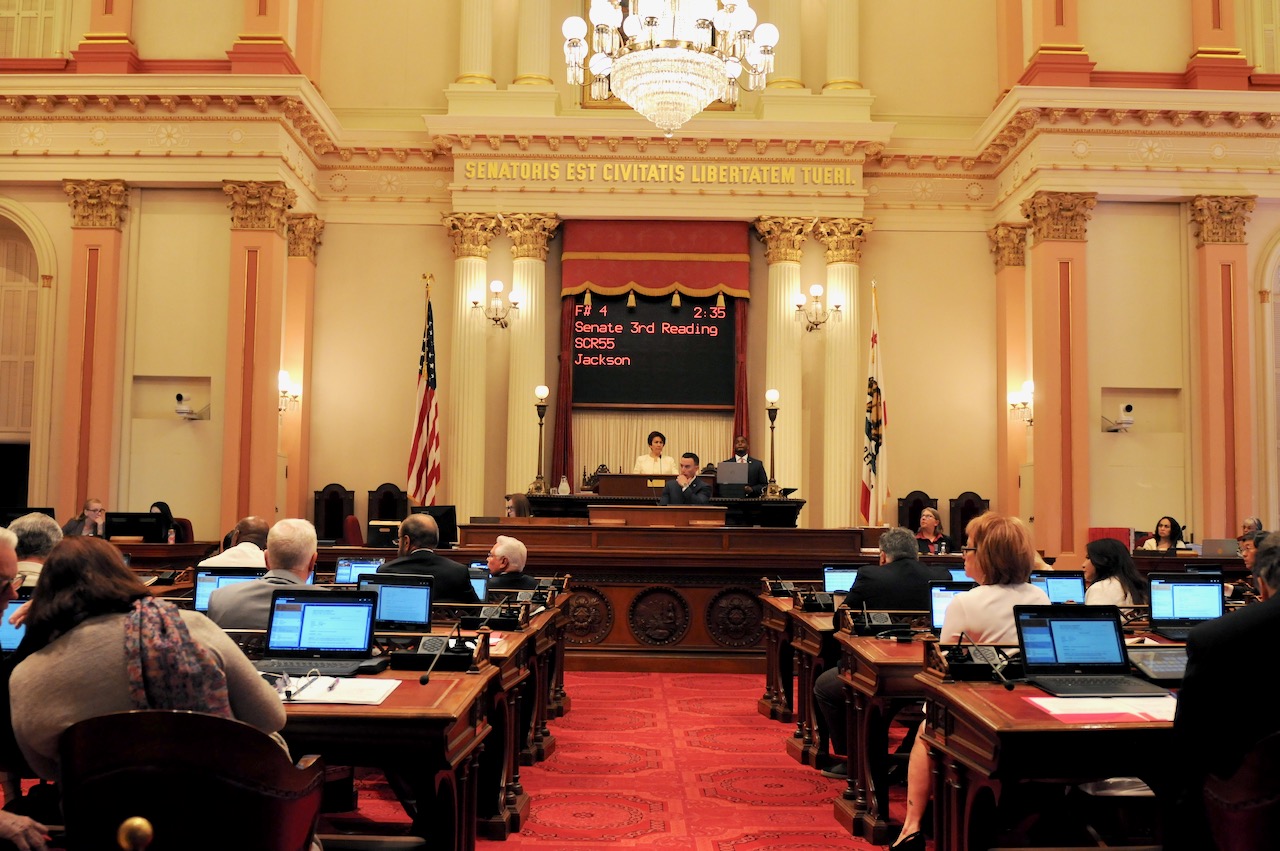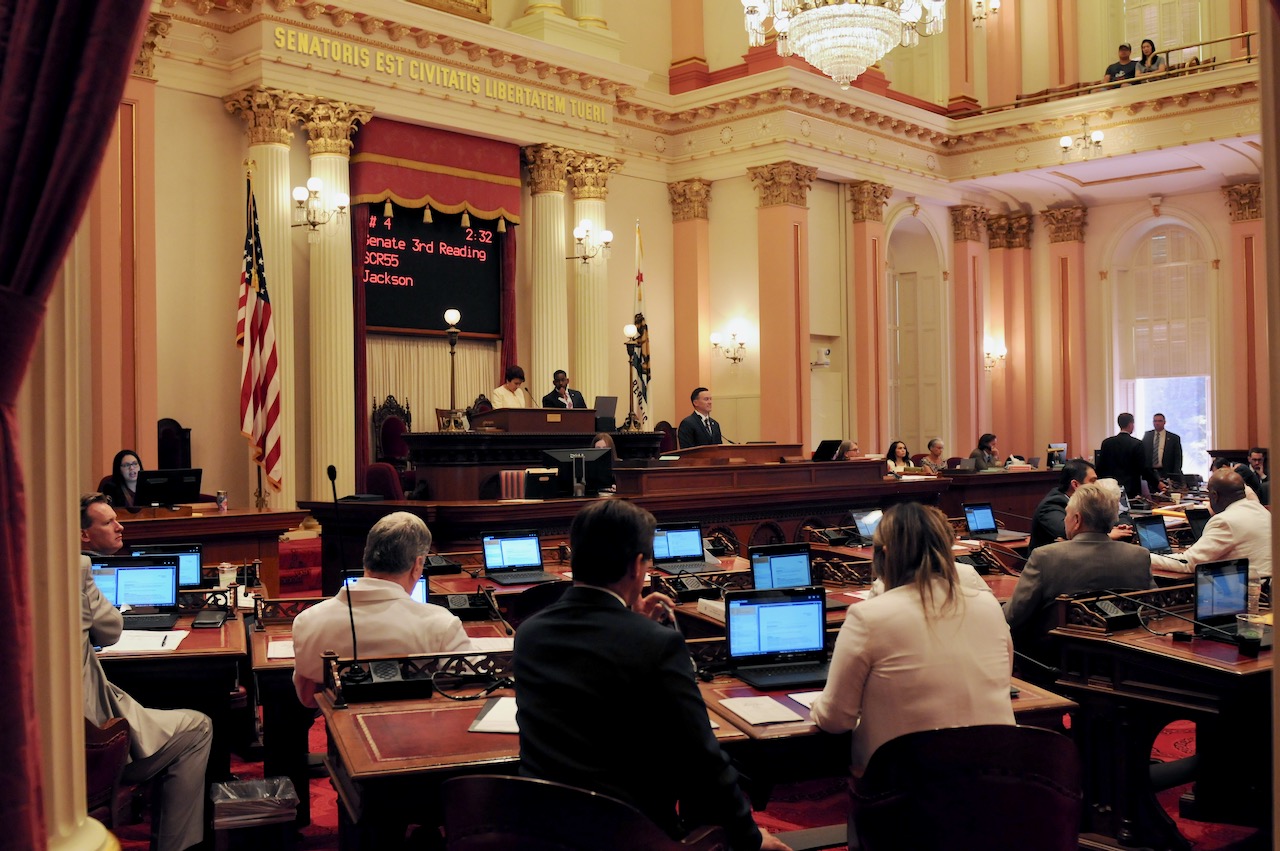
California State Capitol. (Photo: Kevin Sanders for California Globe)
The Joint Legislative Budget Committee
The committee ascertains facts and makes recommendations to the Legislature concerning the State Budget
By Chris Micheli, October 7, 2024 1:00 pm
Article 7 deals with the Joint Legislative Budget Committee. Section 9140 created the Joint Legislative Budget Committee. The committee ascertains facts and makes recommendations to the Legislature concerning the State Budget, the revenues and expenditures of the State, the organization and functions of the State, its departments, subdivisions and agencies, and such other matters as may be provided for in the Joint Rules of the Senate and Assembly.
In addition, the committee has a continuing existence and may meet, act and conduct its business at any place within this State, during the sessions of the Legislature or any recess, and in the interim period between sessions.
Section 9141 requires the committee to be comprised of eight Members of the Senate and eight Members of the Assembly who are selected in the manner provided for in the Joint Rules of the Senate and Assembly. The committee elects its own chairperson. Vacancies occurring in the membership of the committee are filled in the manner provided for in the Joint Rules of the Senate and Assembly.
Section 9142 allows the committee to make rules governing its own proceedings and to create subcommittees from its membership and assign to those subcommittees any study, inquiry, investigation, or hearing which the committee itself has authority to undertake or hold.
Section 9143 requires the committee to have authority to appoint a legislative analyst and other clerical and technical employees as may appear necessary. The funds for the support of the committee are provided from the Contingent Funds of the Senate and the Assembly.
Section 9144 requires the Legislative Analyst to prepare a judicial impact analysis, with the assistance of the Department of Finance and the Judicial Council when and as requested by the Legislative Analyst, on selected measures referred to the Senate Judiciary Committee, Assembly Judiciary Committee, and Assembly Committee on Public Safety.
Section 9146 provides that any state agency which is required or permitted by federal law or regulation to establish or alter a federal aid allocation formula to a local agency must notify the Joint Legislative Budget Committee not less than 60 days prior to the effective date of the establishment or change in the federal aid allocation formula.
The chair of the committee informs members of the Joint Legislative Budget Committee of his or her intention to waive the 60-day notification period after the notification. If no objection is received within 10 days, the chair proceeds to grant the waiver of the 60-day notification period. The notification has to contain specified information.
Section 9147 provides that, if a state agency finds that there is imminent danger of irreparable harm to the public peace, health, safety, or welfare of the state if it does not establish or alter a federal aid allocation formula without undue delay, then it is required to request a waiver of the requirements through notification to the Joint Legislative Budget Committee. The notification has to include a written statement containing five specified items of information.
- Service of Summons in California Civil Actions - December 11, 2024
- Sunset Clause Versus Repeal Clause - December 10, 2024
- Describing a Spot Bill - December 9, 2024





Dear Mr. Micheli: The Joint Legislative Budget Committee was remiss this year in its duty to oversee the California Legislative Analyst Office. The LAO presented a biased and negative summary of Prop 33 in the California 2024 Voter Guide.
The law requires the Legislative Analyst to suggest the economic impact of a proposition for both state and local governments– but only a negative view was given, and only for the state government – “tens of millions” would be lost in tax revenues, if Prop 33 passed, it said.
But renters with regulated affordable rents would have more money to spend; hence, a boon to local economies. That would bring in revenues from sales taxes and store owner income taxes, etc. The LAO said NOTHING about this likely Fiscal Effect. Why?!
The Voter Guide was sent out to 22M Californians. For many voters, it was the one and only thing they would read about Prop 33.
This was such a significant omission that negligence, incompetence, and even corruption can be suspected. Please look into this, and tell your readers about it, if you find that what I’ve said is true. I’ve written more about this at, https://substack.com/home/post/p-152108999
Thank You, William J. Kelleher, PhD